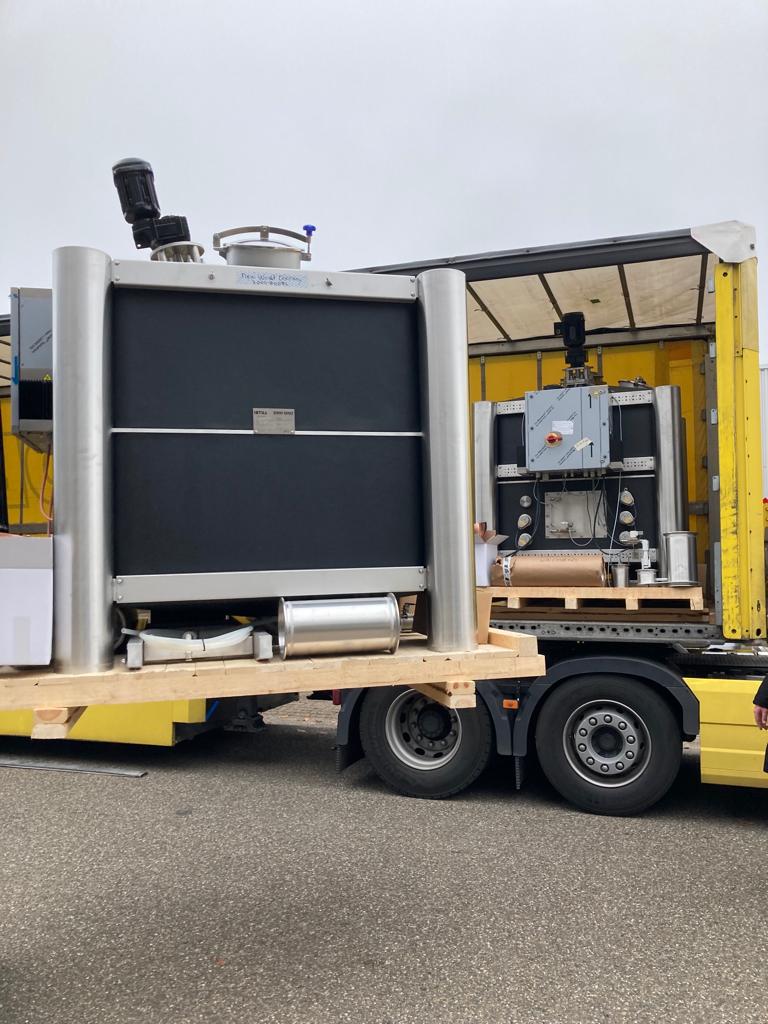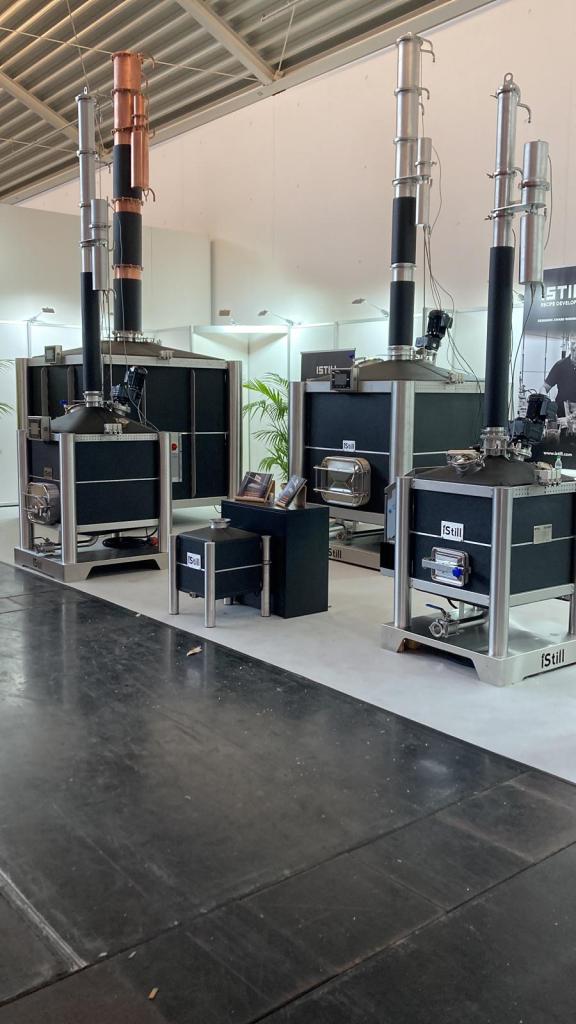Comparing Energy Efficiency: Traditional vs. iStill!
Introduction
Today, we are diving deeper into the topic of efficiency. As many parts of the world see a rise in energy costs, it is a topic that needs to be addressed. Yes, we all know that iStills are the benchmark, when it comes to efficiency, as they are compact, controlled, and insulated. Traditional stills have outdated designs, that hark back centuries, and are not insulated. But how much is the difference really? Can we quantify it? Put numbers on it? Yes we can and yes we will. Here ya go:
Setting the stage
In one corner, we have the traditional distillery set-up: a 550 gallon masher and stripping still and a 140 gallon finishing still. Both are jacketed and steam-powered. The steam-engine runs on propane.
In the other corner sits the iStill 2000. It is electrically powered and can finish a 2,000 liter batch in one go. No need for double distillation, no need for two stills, no need for a steam-engine.
What will they fight over? New make whiskey. Or whisky. Or Bourbon. The goal is to mash, strip, and finish a total of 4,000 liters or 1,100 gallons of wash into 62.5% new make spirit, that's ready to hit the barrel. Who will be more efficient and by how much? The traditional set-up or the iStill? And, as a bonus, we'll also translate energy usage into energy costs.
Traditional efficiency
Based on a real world example by now iStill customer Aris Aristides, that ran a traditional set-up, making American whiskey in the USA, here are his numbers:
- Mashing 2,000 liters in the 550 gallon masher costs 30 gallons of propane;
- Two mashes therefore equal an energy use of 60 gallons;
- Stripping 2,000 liters in the 550 gallon stripping still costs 30 gallons of propane;
- Two stripping runs therefore equal an energy usage of 60 gallons;
- The finishing run consumes another 30 gallons of propane;
- Total propane used is 150 gallons;
- 150 gallons of propane equals 600 liters of propane (yes, going metric here);
- One liter of propane provides 7 kWh of energy;
- So mashing, stripping, and finishing 4,000 liters into new make spirit costs 4,200 kWh.
Aris' costs when running a traditional, copper set-up ...

iStill efficiency
Based on two real world examples, from a French and a Dutch customer, that use the iStill 2000 to make new make spirit in one go, we come to the following energy efficiency numbers:
- Mashing 2,000 liters in the iStill 2000 costs 150 kWh of electricity;
- Two mashes, for 4,000 liter total, therefore equal an energy use of 300 kWh of electricity;
- Distillation run time is 10 hours (including heat-up, based on the latest 54 kWh model);
- Power usage of 46,5 kW per hour throughout the distillation run;
- Total power usage, in order to distill a 2,000 liter wash into new make, is 465 kWh;
- Total power to distill 4,000 liter of wash into new make spirit is 930 kWh;
- So mashing and distilling 4,000 liters of wash into new make spirit costs 1,230 kWh in total.
The iStill 2000: the craft distiller's favorite whiskey production machine ...

Costs
Based on (currently less disrupted) American energy prices, the following can be noted:
- One gallon of propane costs $ 3.-, so a traditional runs, that use 150 gallons, cost $ 450,-;
- One kWh costs $ 0.14, so the iStill runs, that use 1,230 kWh, cost $ 172.-
The outcome of the battle?
The iStill 2000 uses 1,230 kWh to mash and distill 4,000 liter. The traditional, indirectly fired, steam-heated, copper set-up used by Aris in his previous, pre-iStill distillery uses the equivalent of 4,200 kWh.
Using an iStill instead of a traditional set-up saves the craft distiller a whopping 2,970 kWh. The iStill is 3.5 times more efficient than the traditional distillery!
Mashing and distilling 4,000 liters results in 440 liters or 2 barrels/barriques of new make spirit at 62.5%. On a traditional, copper set-up it costs $ 450.- to produce this amount. With the iStill the energy bill is just $ 172.-.
Conclusions
If you want to be an energy efficient craft distiller, buy an iStill. If you want to be a cost efficient craft distiller, buy an iStill. If you want to be an environmentally friendly distiller, buy an iStill. And since our customers win more awards than anyone else out there: just buy an iStill.

www.iStill.com
Reactions
Add your comment
All reactions ()
Loading comments..